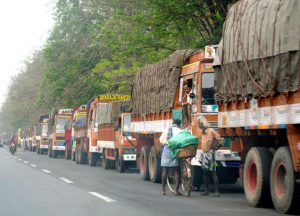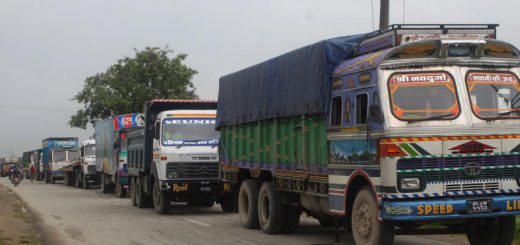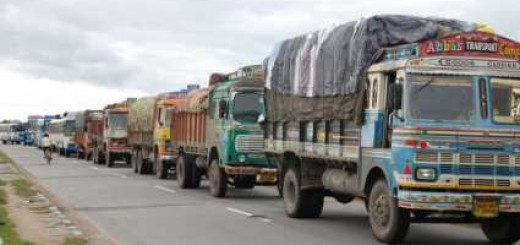Truck queues at state borders check posts may end soon
GST Council has set up a task force at border check posts , to ensure seamless movement of freight across the country and reduce losses to the economy, due to frequent stoppages.
Traffic congestion at border check posts could be a thing of the past with the GST Council setting up a task force, to ensure seamless movement of freight across the country and reduce losses to the economy, due to frequent stoppages.
A study conducted by IIM-Kolkata has estimated loss to the economy due to delays at border checkposts at $6.6 billion, apart from the cost of fuel due as transporters deal with documentation of nearly 20 state and Central government agencies. Another study undertaken by the road transport ministry has revealed that less than 1% of trucks were detained for not having proper documentation.
Another study by a consultancy firm has shown that the average waiting time for trucks for documentation checks is 10% of the total driving time resulting in significant delays.
Several states such as Maharashtra, Rajasthan and Haryana have done away with physical checks at border posts on some vital freight routes and instead rely on flying squads. This has significantly cut down delays at border checkposts, sources said. Introduction of the Goods & Services Tax (GST), a key reform measure, is expected to usher in seamless movement of goods across the country but border checkposts remain an irritant. An analysis of the pile-up at border checkposts has shown the delays are largely due to physical verification of documents by state commercial tax and transport departments.
Sources said the proposed task force would comprise officers from finance and transport departments of some states, the ministry of road transport and highways and the department of revenue to examine the “issue of creating an eco-system for seamless freight movement.” It is expected to submit its report to the council, which may call for a meeting of the state finance and transport ministers to discuss the issues and decide on the mechanism for “seamless road connectivity.”
While the e-bill proposed under the GST regime is expected to support seamless movement from the point of view of the commercial tax department, but if the practice of transport documentation checks is continued, it is unlikely to reduce congestion at checkpoints and ensure “barrier free freight transport across the country.” There are various options to reduce pile-up at checkposts. For example, the “Vahan” database of the road transport ministry is used to generate bills by the Goods & Services Tax Network, the IT backbone which will manage GST.
The radio frequency identification (RFID) tags installed on vehicles can be used for checking the identity of vehicles, and the effort should be focused on reducing physical checks and eliminate checkposts.
Source: https://goo.gl/8s83vb





Recent Comments